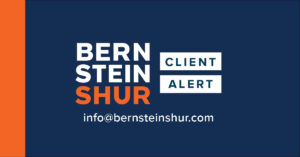PPP Loan Subjects a Private K-12 School to Title IX: What You Need to Know About Karanik v. Cape Fear Academy, Inc.

Please be informed: Proposed Title IX Regulations have been issued as of the date of this Client Alert.
Last week, a federal court issued a ruling that could have significant implications for private K-12 schools that took out a Paycheck Protection Program (“PPP”) loan under the Federal CARES Act. On June 17, 2022, Judge Dever of the United States District Court for the Eastern District of North Carolina found that Cape Fear Academy (“the School”), a private school in Wilmington, North Carolina, could be subject to Title IX because it borrowed PPP funds.
The Small Business Administration (“SBA”) administers the PPP loan program as part of the Federal CARES Act legislation that Congress passed during the COVID-19 pandemic. When an education program or activity, including a private school, accepts “federal financial assistance,” it is subject to Title IX. Title IX prohibits sex-based: discrimination, exclusion from participation in, and denial of the benefits of any education program or activity that receives “federal financial assistance.”
At issue in Karanik v. Cape Fear Academy, Inc. was whether Cape Fear Academy received federal financial assistance when, as a borrower, it received money from a bank (an intermediary lender) via an SBA-guaranteed loan. The Court held the School received federal financial assistance and had to comply with Title IX for the life of the loan. The underlying facts concern the School’s PPP loan and the Plaintiffs’-Students’ experiences at the School during the 2020-21 academic year and the summer of 2021.
The School had the PPP loan from May 4, 2020 (when the bank applied to the SBA for a guaranty of its loan to the School) until June 15, 2021 (when the SBA forgave the School’s entire PPP loan and repaid the bank). In the loan agreement, the School promised to comply in all material respects with “all laws, rules, regulations and requirements of any Governmental Authority, including the SBA, applicable to its business.”
Three female high school students sued the School alleging that during the 2020-21 academic year, they experienced offensive remarks about women, sexual assault on women, and violence toward women, from male students who continued making the offensive remarks, causing one of the students to suffer panic attacks. The students took their concerns to the School’s Dean of Students, but did not know whether the School conducted an investigation. Additionally, the Dean failed to meet with one of the students, despite that student’s attempts to meet with him several times.
There are two key takeaways from Judge Dever’s decision:
First, many of our private school clients who do not otherwise receive federal financial support borrowed PPP loans and may be grappling with the implications raised by this decision. The Court determined that a PPP loan is “federal financial assistance” subject to Title IX because it is “[a] grant or loan of Federal financial assistance.” Although the bank, a private lender, issued the loan, the School’s loan documents indicated that the bank issued the loan pursuant to SBA’s lending authority under the CARES Act, making the School’s PPP loan one of “Federal financial assistance.” As the Court reasoned, PPP borrowers are Congress’s intended recipients, and the PPP loan is not itself the guaranty but the instrument that creates the debt to be guaranteed, rendering even private school borrowers – such as the School – subject to Title IX. For that reason, we recommend that all educational institutions that have submitted a PPP loan application and received disbursements of the loan, review their policies governing reports of Sexual Harassment as defined by and within the scope of Title IX.
Second, the Court rejected the School’s arguments that one Plaintiff-Student failed to plausibly allege a student-on-student sexual harassment claim and that other Plaintiffs’-Students’ failed to state retaliation claims under Title IX. The Court held that the students’ allegations of sexual harassment and retaliation are plausible, and that the School can be held liable because it was subject to Title IX for the relevant period (the life of the borrowed PPP loan). The students’ Title IX claim, as well as a breach of contract claim, will continue to trial. The SBA has made clear that once the PPP loan is paid or forgiven, independent schools are no longer required to comply. An important caveat, however, is that the duration of compliance with federal laws and regulations depends upon the purpose for which the federal assistance was used. For instance, federal funds used with respect to real property may extend the duration of compliance with the federal regulation for as long as the property or building is used to provide educational programs or activities. In the event of non-compliance with Title IX, the SBA can accelerate the maturity of the loan, suspend or refuse any financial assistance not yet provided, or make a referral to the U.S. Department of Justice. Individuals who believe they have been discriminated against based on sex may rely on Title IX to bring a private lawsuit against the school. For those reasons, independent schools should review their policies and procedures, as they may need to comply with Title IX.
As the Plaintiffs in Karanik proceed with their respective claims and we learn more about the implications of this decision and what it will mean for our clients, our Investigations & Resolutions Team will update this guidance. We strongly encourage you to consult with our Investigations & Resolutions Team, including Amanda Ames and Kai McGintee, if you have any questions about this recent legal development.
